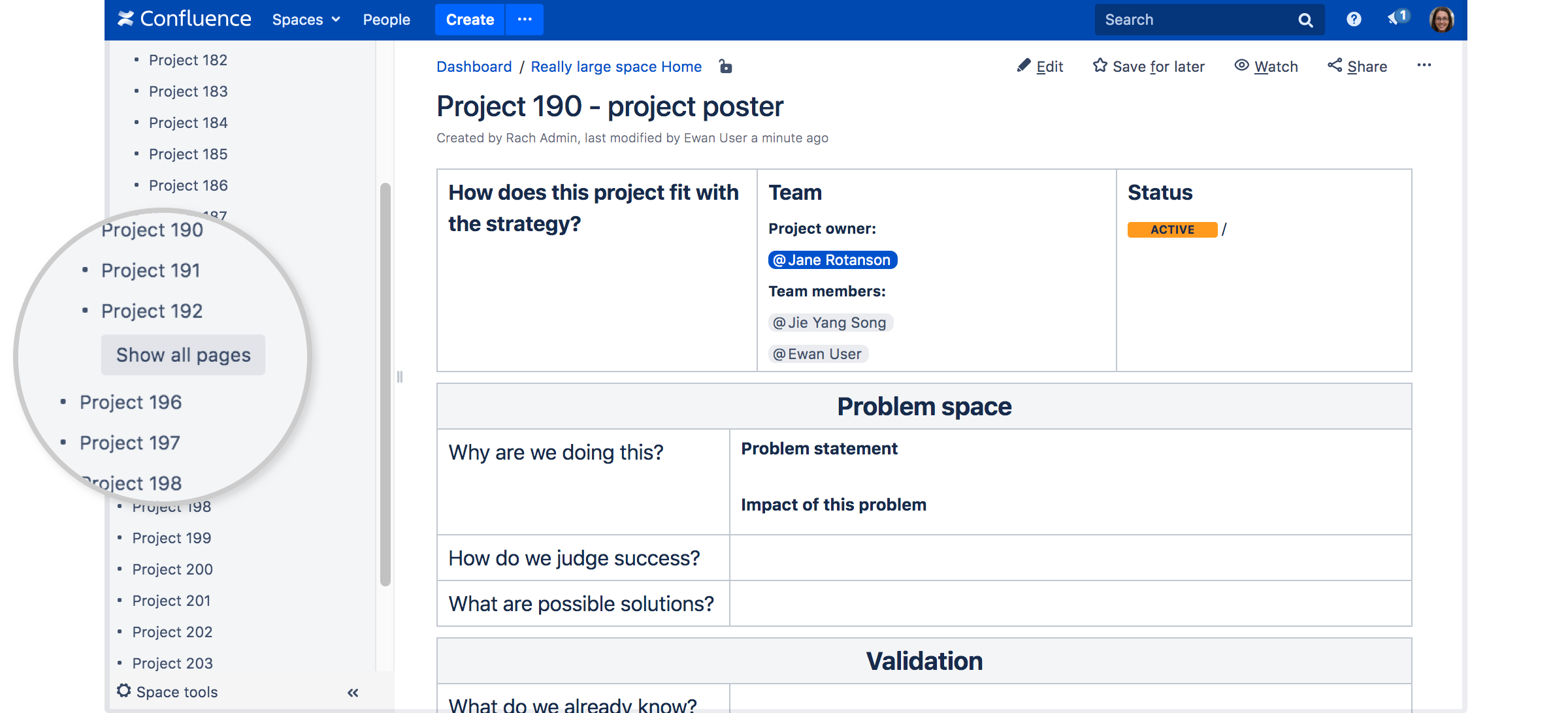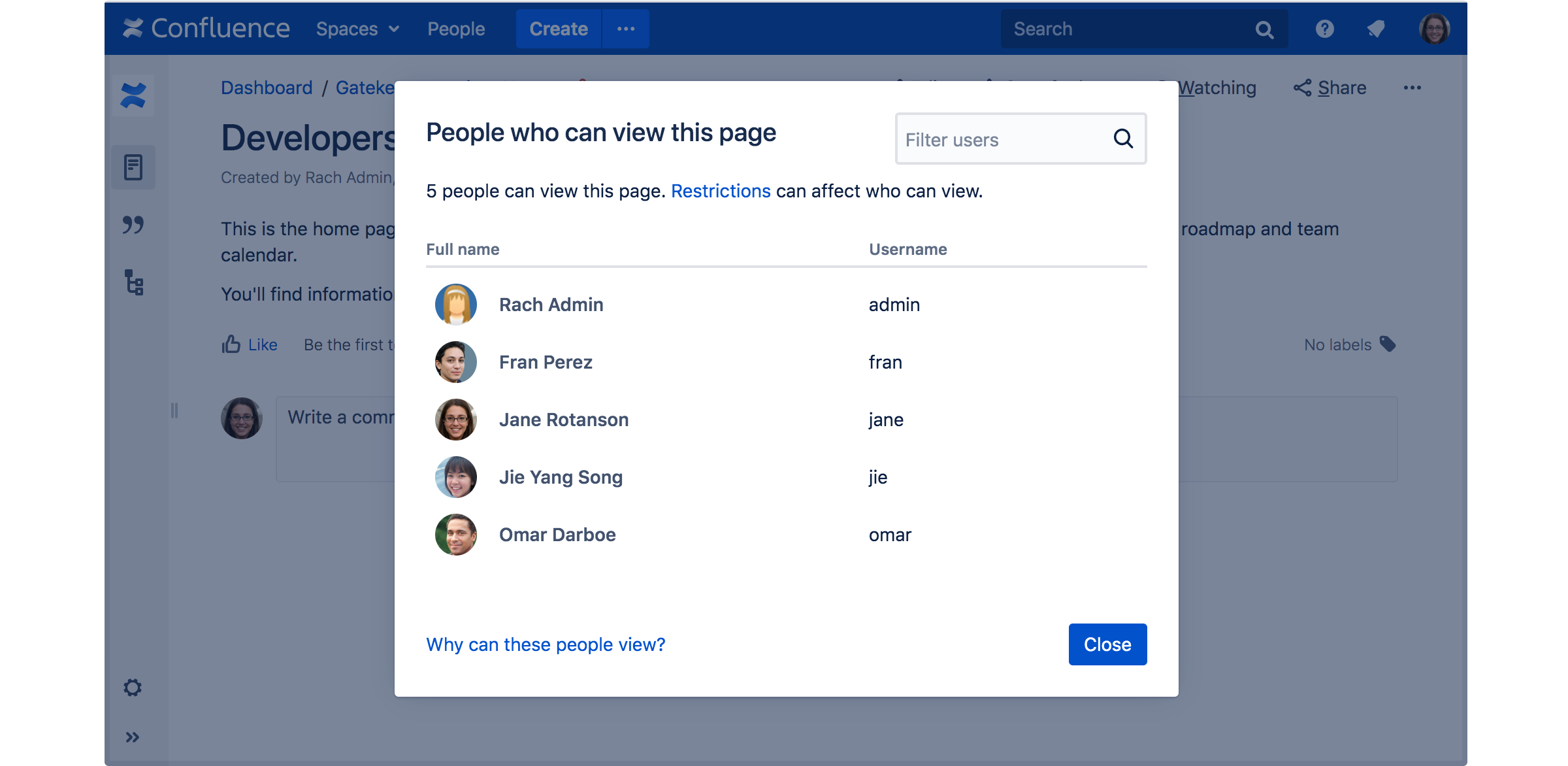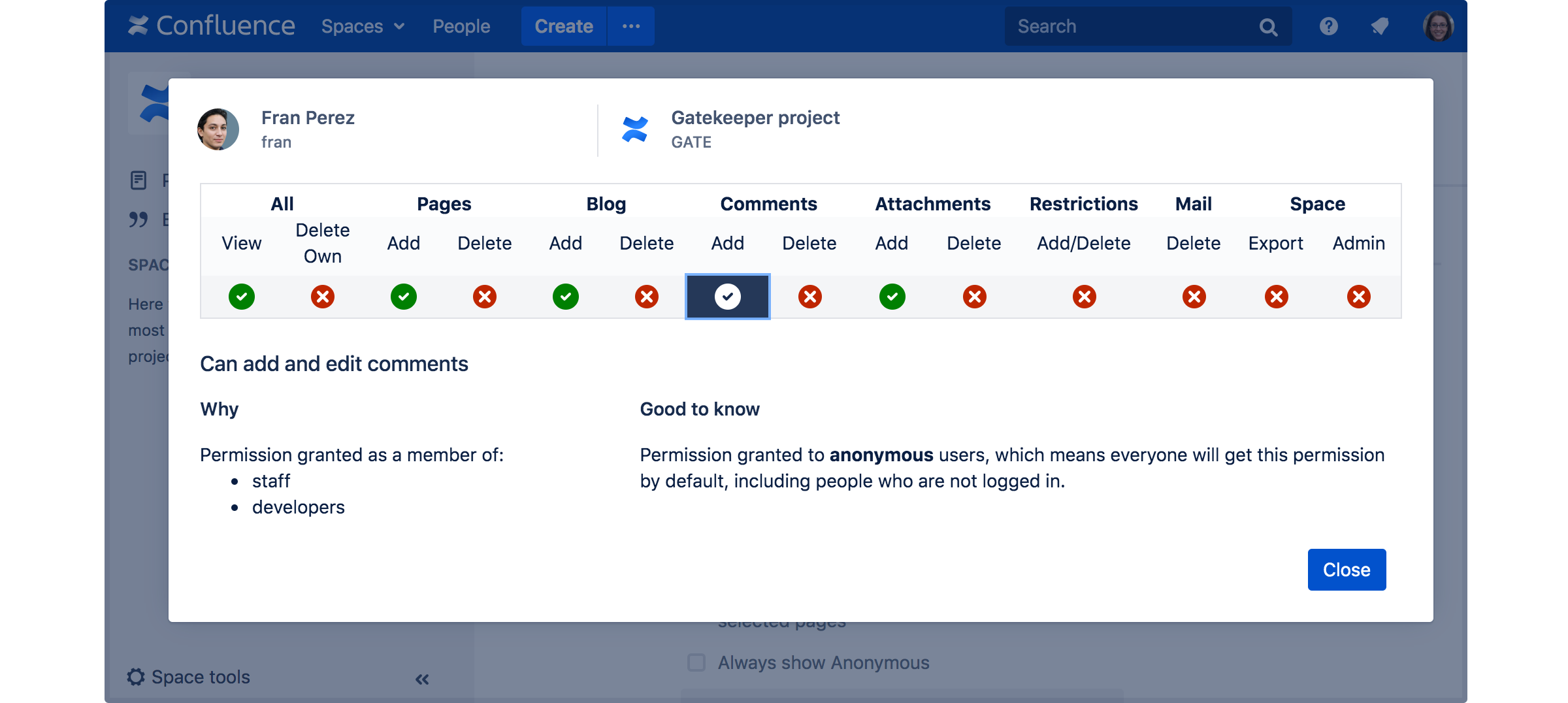Confluence 7.3 beta release notes
Development releases are not production ready. Development releases are snapshots of the ongoing Confluence development process. While we try to keep these releases stable, they have not undergone the same degree of testing as a full release, and could contain features that are incomplete or may change or be removed before the next full release.
No upgrade path. Because development releases represent work in progress, we cannot provide a supported upgrade path between development releases, or from any development release to a final release. You may not be able to migrate any data you store in a Confluence development release to a future Confluence release.
Atlassian does not provide support for development releases.
Issues with this beta?
Please raise an issue to tell us about it.
Highlights of 7.3.0-rc2
Released 3 February 2020
In this release candidate:
- We have reverted a fix introduced in 7.2.1 for
CONFSERVER-26897 Closed as it caused issues when creating pages from templates. See
CONFSERVER-59370 Closed for more information.
- We have released Atlassian Companion 1.0.0.
Highlights of 7.3.0-rc1
Released 29 January 2020
This release candidate contains minor fixes and improvements.
Safeguarding performance in massive spaces
When loading the page tree, we need to do lots permission checks, to make sure people don't see pages that are restricted. In a very large space, these checks can consume a lot of memory and CPU, and have an impact on the overall performance of your site.
Now when you visit a space, we'll only load 200 pages at each level of the hierarchy. You can then hit the Show all pages button to load all the pages in the space in one go.
As people often land on the page they want to view by following a link, or from search, we don't expect this change to make getting around the space more difficult. However, you can choose to disable this behaviour, or increase the number of pages that initially display using a system property.
Change to OpenID
We have decided not to bundle the latest version of the SSO for Atlassian Data Center plugin. Version 4.x of the plugin, which provides OpenID support, is available from Marketplace, and we plan to bundle it in a future release.
Highlights of 7.3.0-beta1
Released 14 January 2020
Self-protect and sleep easy with rate limiting
For DATA CENTER
Without protections in place, automated integrations and scripts can hammer your Confluence site, with huge bursts of requests leading to drops in performance and downtime. This creates unnecessary work for admins who get paged (often after hours) to fix issues, and then have to comb through logs to find the culprit so it doesn’t happen again.
Rate limiting changes all this by giving your Confluence instance the power to self-protect. Admins can now control how many REST API requests automations and scripts can make, and how often they can make them, meaning increased performance and team productivity (and hopefully for admins, more sleep too).
Check who can view a page and share with confidence
For SERVER DATA CENTER
Confluence is open by default, but due to the layers of space permissions and page restrictions that can be applied, it isn't always obvious who can actually see your page.
If you want to share a page with someone in a different team, for example, it's useful to know whether they have adequate permissions to see it before you hit the share button.
Now you can share with confidence. Go to
- are allowed to view the space, via space permissions, and
- are not prevented from viewing the page by page restrictions.
Administrators can disable the People who can view option, if they don't want people to be able to see the list of names.
Advanced permissions management for easier administration
For DATA CENTER
Once your site reaches a certain size, permissions management can be a challenge. We now provide the tools you need to manage, troubleshoot, and audit permissions.
Troubleshoot permissions problems
Space administrators can now look up a user, and find out exactly why they do, or don't, have permission to do something. You can even query a specific page, to bring in page restriction information.
Go to Space Tools > Permissions > Inspect permissions to check it out.
Administrators (people with Confluence Administrator or System Administrator global permissions) have even more power. They can search by users or groups across all spaces.
Audit your permissions
Getting a picture of exactly who can do what in your site can be laborious. Now, it's a simple matter of inspecting permissions, then exporting the results of your query to a CSV file for auditing or further analysis.
For example, if you have a sensitive space, and need to provide a list of all people who can create and delete content in that space, all you need to do is search by the space name, and export the results.
Bulk apply permissions changes to other spaces
If you're an administrator, you also have the option to edit permissions on the fly, then copy these permissions to other spaces. This is incredibly useful when you create a new group, and want to give that group the same permissions in several existing spaces.
More control when editing files
For SERVER DATA CENTER
It's now easier to keep track of the files you've opened for editing with Atlassian Companion. When you click Edit, the file will be listed in the Companion window. Once you're finished making changes, click Upload to send the file back to Confluence.
Files are listed until you choose to remove them from the list, or restart Companion. Less invisible magic, more reliability.
We've also changed the way Confluence launches Companion. Your browser will now ask your permission to launch the Companion app each time you click Edit. This method works in the latest versions of all browsers, in virtual environments (including terminal server environments), and avoids problems some people had when Companion wasn't already running in the background, or their browser wouldn't allow the connection.
After upgrading Confluence, you'll also need to upgrade Companion to get these great new features.
Single sign-on with OpenID Connect providers
For DATA CENTER
Some time ago we added SAML single sign-on support to all of our Data Center products. Now we've added the option to authenticate with identity providers that use the OpenID Connect protocol.
Go to Administration menu > General Configuration > SSO 2.0 to see all the single sign-on options.
Upgrade notes
PostgreSQL 10 support
We've added support for PostgreSQL 10. If you plan to upgrade, you should upgrade Confluence first, then upgrade your database.
See pg-upgrade in the PostgreSQL 10 documentation for information on how to upgrade your database. Make sure you back up your database, Confluence installation directory and Confluence home directory before you begin. We strongly recommend you test your changes in a staging environment first.
After upgrading, we recommend you run ANALYZE. Analyze collects statistics about contents of tables in the database, which the query planner can use to help determine the most efficient execution plans for queries.
There's also a known issue where Confluence won't start with PostgreSQL 10 in Amazon RDS. See
CONFSERVER-59243
-
Upgrade to Postgres 10 on AWS RDS Confluence can't find tables
Long Term Backlog
for more information and a workaround.
Oracle 19c support
We've added support for Oracle 19c. If you plan to upgrade, you should upgrade Confluence first, then upgrade your database.
See Database Upgrade Guide in the Oracle 19c documentation for information on how to upgrade your database. Make sure you back up your database, Confluence installation directory and Confluence home directory before you begin. We strongly recommend you test your changes in a staging environment first.
Companion app upgrade required
We've made significant changes to how you edit files using Atlassian Companion. When you upgrade to Confluence 7.3, you'll need to make sure your users are running the latest version of Companion App.
Earlier versions (0.6.2 and earlier) will not work with Confluence 7.3.
Ultimate Permission Manager app
If you currently use the Meta-Inf Ultimate Permission Manager app, that was acquired by Atlassian, there's some things you need to know before you upgrade.
- If you have a Confluence Data Center license, when you upgrade to Confluence 7.3, the Ultimate Permission Manager app will be disabled automatically. This is intentional, so we can give you access to "Inspect permissions" and "People who can view", which are the equivalent features in Confluence Data Center.
- If you have a Confluence Server license, when you upgrade to Confluence 7.3, you'll be able to continue to use the Ultimate Permission Manager app until your app license expires.
- If you have a Confluence Server license, and your Ultimate Permission Manager app license has expired, we recommend you disable or uninstall the Ultimate Permission Manager app, in order to get access to the equivalent "People who can view" feature.
Java 11 now bundled
In this release we've bundled the AdoptOpenJDK 11 JRE. This JRE is used when you install or upgrade Confluence using the installer. If you've installed Confluence manually you can either continue to use Java 8 or switch to Java 11. See Change the Java vendor or version Confluence uses to find out how to switch your Java version.
Some of the Java arguments used in our setenv.sh / setenv.bat files are no longer recognised in Java 11. Make sure you apply any customizations manually when you upgrade, don't simply copy over your old setenv file (or existing Java options if you run Confluence as a service).
If you have added additional arguments, you may need to check that these are still available in Java 11, as they may cause errors when you start Confluence.
Supported platforms changes
Advance Notice: End of support for Internet Explorer 11
To allow us to continue to take advantage of modern web standards to deliver improved functionality and the best possible user experience across all of our products, we have decided to end support for Internet Explorer 11.
Confluence 7.4.x (Enterprise Release) will be the last release to support Internet Explorer 11.
Advance Notice: End of support for several databases
Confluence 7.3.x will be the last release to support the following databases:
- PostgreSQL 9.4
- MySQL 5.6
- Oracle 12c R1
- Microsoft SQL Server 2012
Confluence 7.4.x (Enterprise release) will be the last release to support the following databases:
- Microsoft SQL Server 2014
- PostgreSQL 9.5
For more information on all of these notices, see End of Support Announcements for Confluence.
Infrastructure changes
Confluence 7.3 contains changes that may affect apps. Head to Preparing for Confluence 7.3 to find out how these changes will impact app developers.






